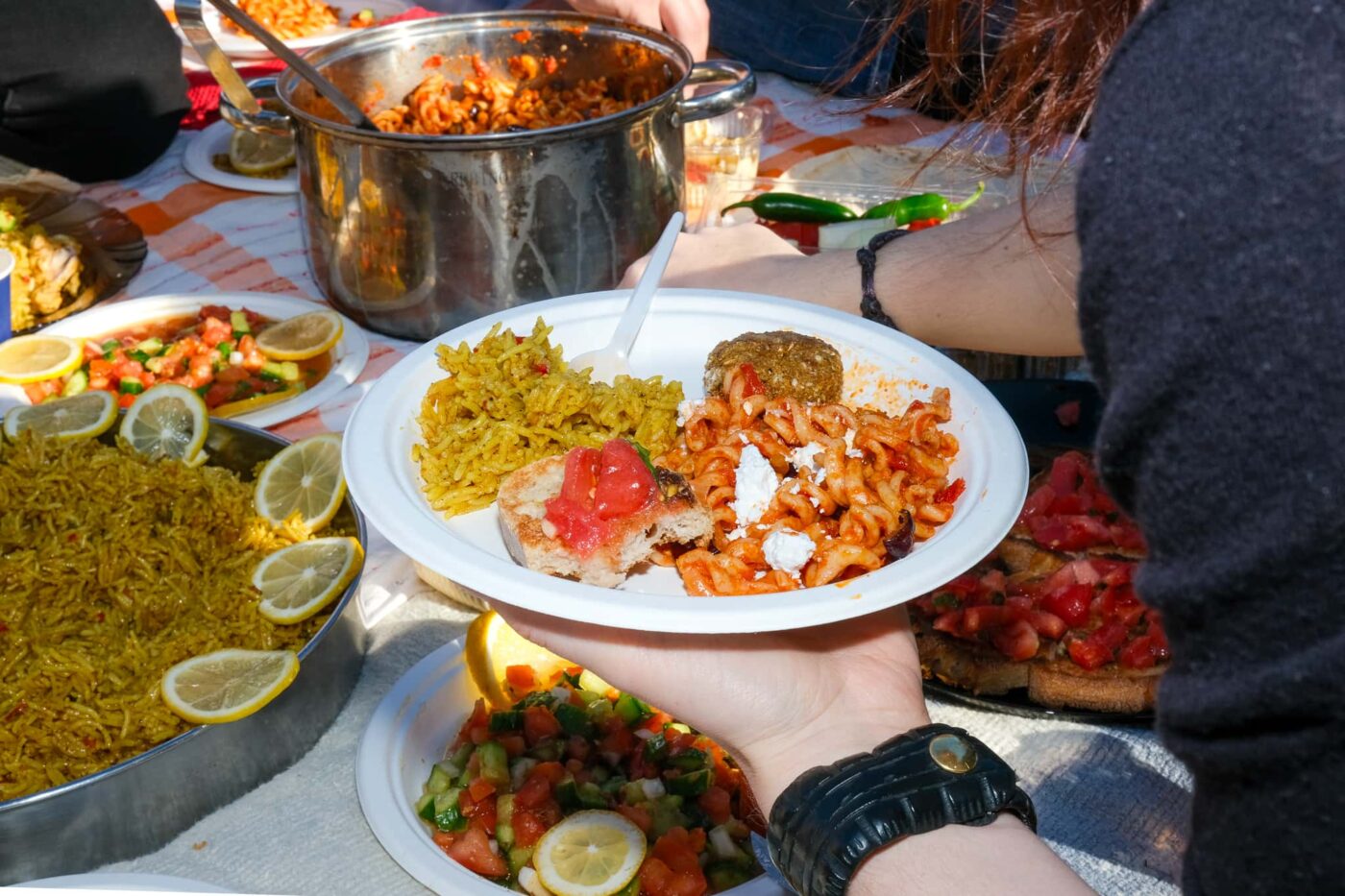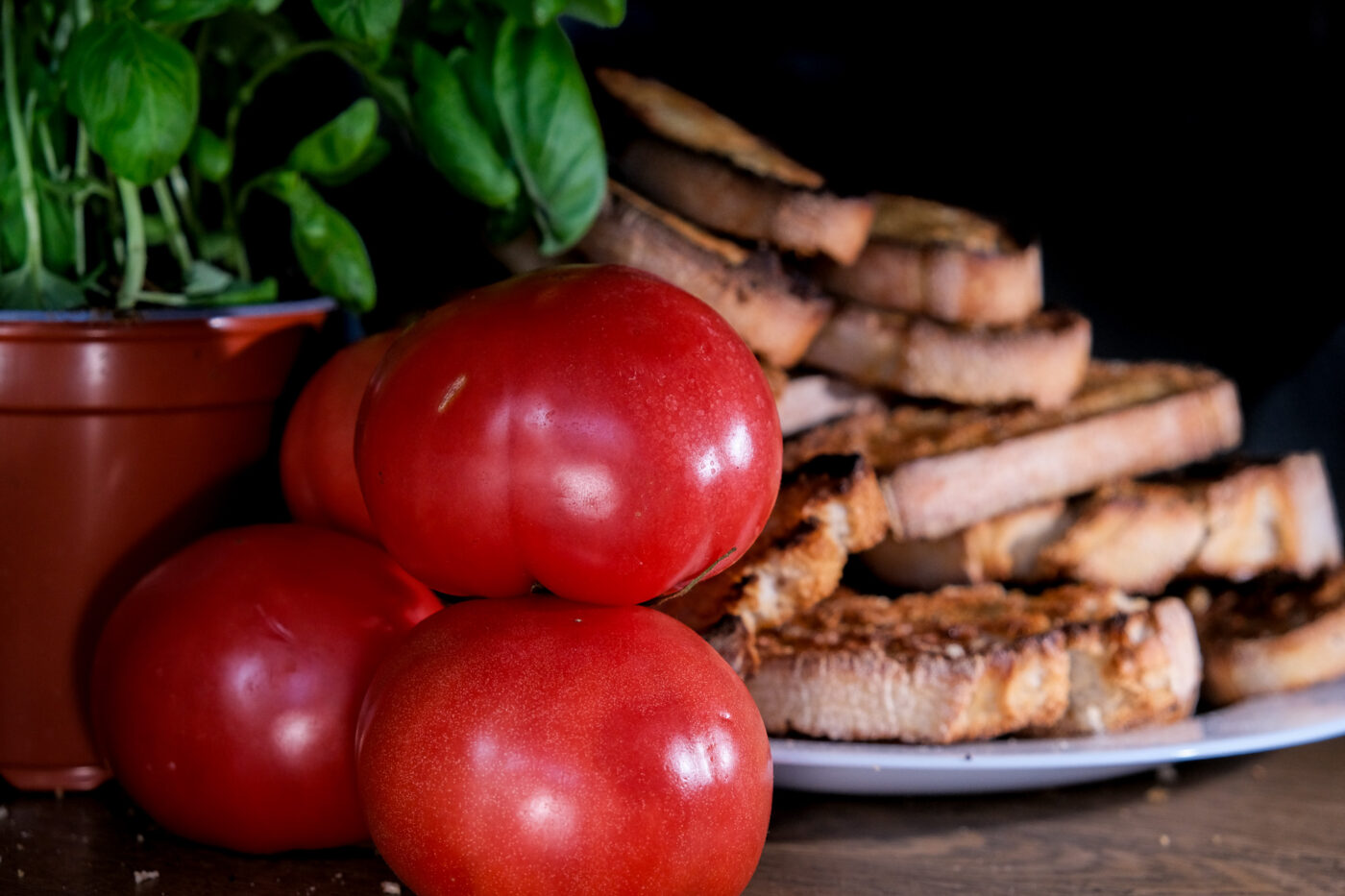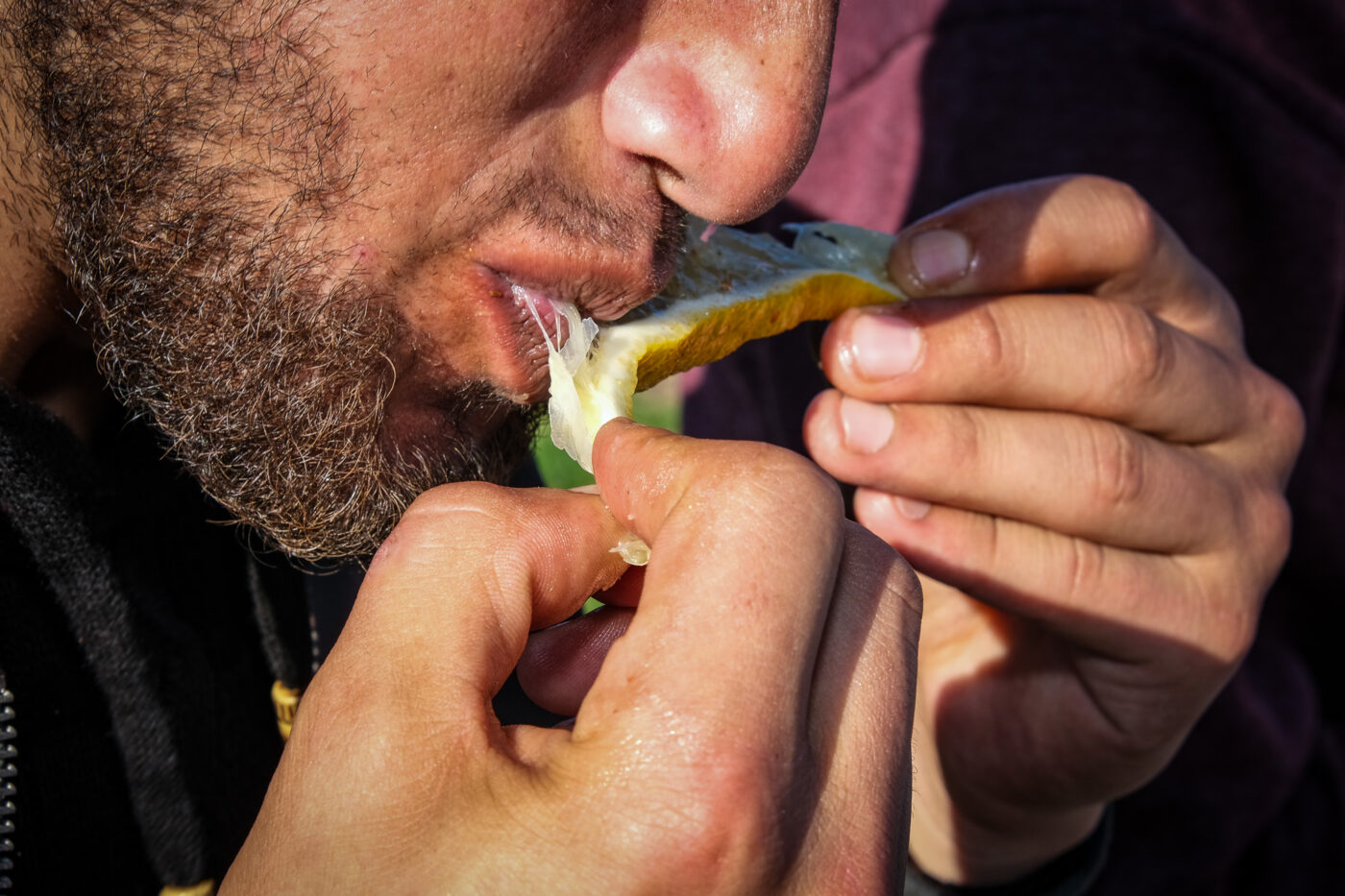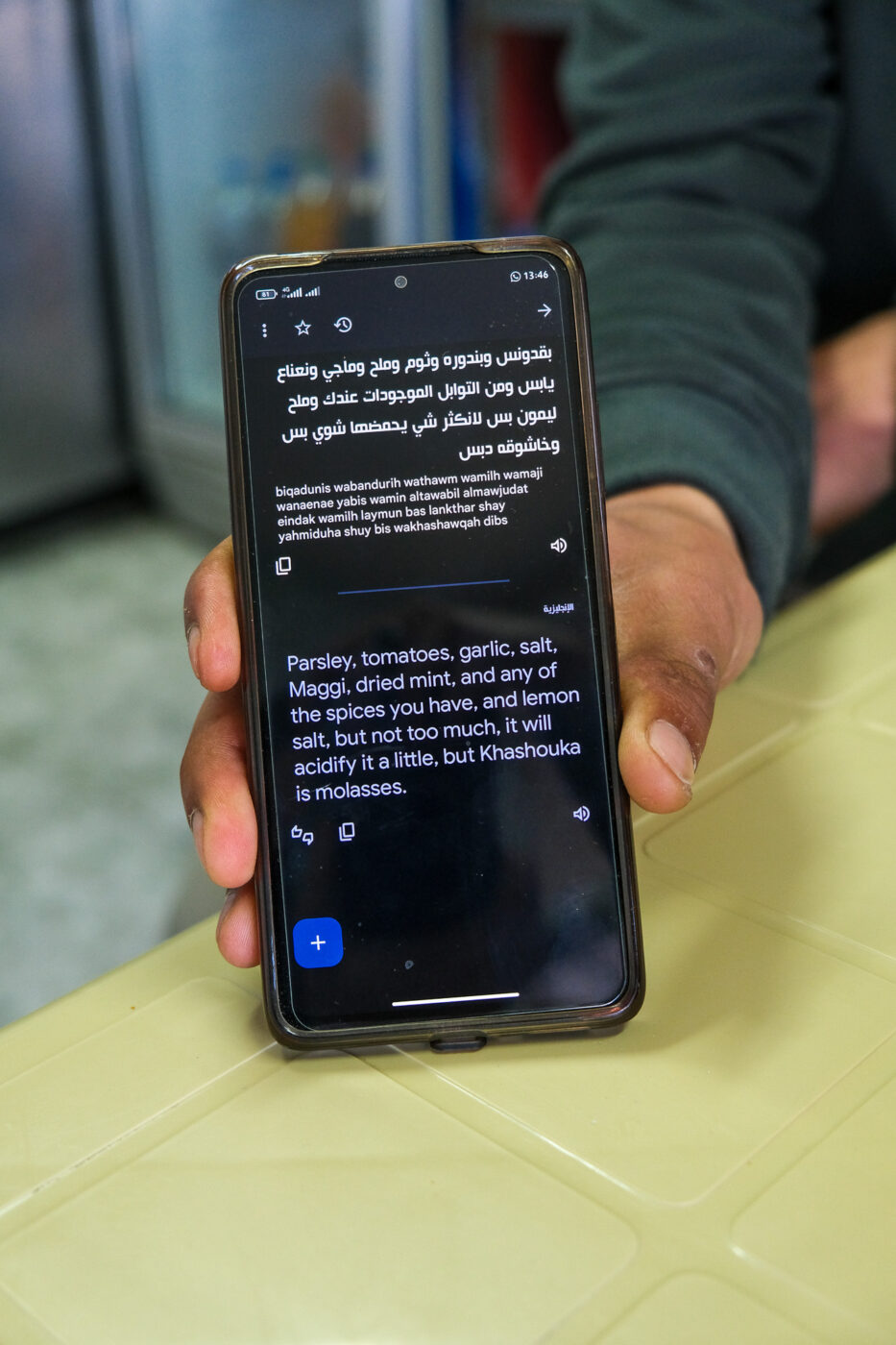Food embodies the essence of home, survival, culture, communication and community
In the midst of a challenging and somewhat hostile environment such as the Bulgarian one, every activity we organize and carry out within the Solroutes project is the result of a daily and intense labor of care and intimacy. We understood from the very first day that in order to gain the trust of the people on the move and to collect their stories without falling into the extractivist dynamics of epistemic violence, we would necessarily have to get in touch with their everyday life and become part of their routine. And what better way to share that closeness and familiarity than to cook together?
Food embodies the essence of home, survival, culture, communication and community. Along the Balkan route, amidst the challenges of migration, acquiring and preparing food becomes a constant struggle. Sharing food, however, remains one of the few sources of joy in these circumstances. Food represents an assertion of self-determination, allowing individuals to cook their own meals on the move, free from the constraints of ‘official’ hospitality. In addition, food serves as a conduit for culture, a mean of sharing stories, culture, and humanity at the intersection of migration and solidarity.
Cooking together and sharing meals – and joyfully staging a competition Syria versus Italy! – was actually an idea suggested by the Syrian people hosted at Harmanli’s reception and registration center, who are actually prevented by the authorities from cooking their own food inside the camp. While the experience of being on the move and the status of refugees often somehow act as an eraser of individual and collective subjectivities, cooking and eating outside was a way to share with us through food the memories of their homeland, the bonds they maintain with their families, and the pride they feel for their roots and culture.
Researchers: R. Ghaffari, E. Zampa








